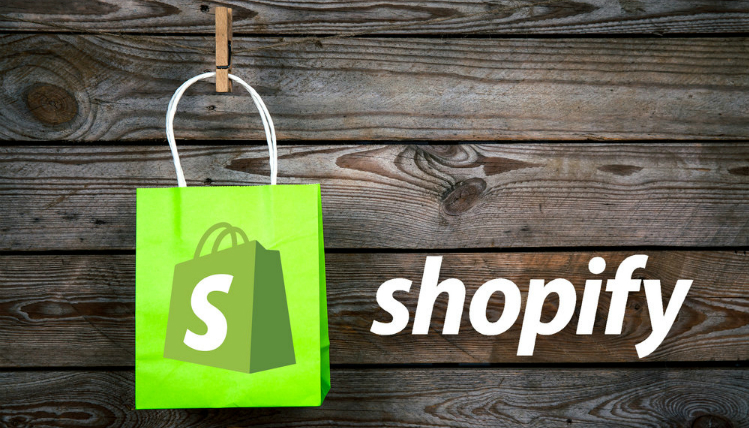Shopify is one of the most popular e-commerce platforms, with over 6,312,392 stores in 2022. Are you looking for some Shopify SEO guidance? With its easy-to-use interface and comprehensive set of tools, it’s a great option for businesses looking to sell products online.
However, simply having a Shopify store is not enough. To truly succeed in the online marketplace, you need to seek ways to improve your organic traffic.
What is organic traffic?
Organic traffic refers to the visitors that come to your website from search engines, such as Google, through unpaid results. This type of traffic is important because it is highly targeted, meaning that the people who find your eCommerce website through organic search are looking for what you offer. The best way to improve your organic traffic is Shopify SEO.

What is Shopify SEO?
Shopify SEO (Search Engine Optimization) refers to the practice of optimizing an online store built on the Shopify platform to rank higher in search engine results pages (SERPs) and drive organic traffic. The goal of Shopify SEO is to increase visibility and attract potential customers to the online store.
Shopify SEO can benefit your business in many ways, such as:
- Improved visibility: One of the most important benefits of Shopify SEO is improved visibility. A well-optimized website will rank higher in search engine results pages (SERPs), making it more likely for customers to find your website when searching for products or services you offer.
- Increased traffic: As your website’s visibility improves, you’ll likely see an increase in traffic. This means more potential customers will visit your website, leading to more sales and revenue.
- Better user experience: Shopify SEO focuses on making your website user-friendly, with a clean and organized layout, easy-to-use navigation, and fast loading speeds. This will lead to a better user experience for your customers, which can lead to more repeat visits and positive word-of-mouth recommendations.
- Improved brand reputation: By improving your website’s visibility and user experience, you’ll also be improving your brand reputation. A well-optimized website shows that your business is professional and trustworthy, which can lead to increased customer confidence and loyalty.
- Increased credibility: Search engines give higher rankings to websites that are optimized for their algorithms. When your website ranks high in search results, it will be seen as more credible by customers and search engines.
- Increased conversions: By improving your website’s visibility, user experience, and credibility, you’ll likely see an increase in conversions. This means more customers will make a purchase on your website, which will lead to increased revenue.
- Cost-effective marketing: Shopify SEO is a cost-effective way to market your business. Unlike traditional marketing methods, SEO is a long-term strategy that can generate sustainable results over time.
- Better targeting: Shopify SEO allows you to target specific keywords and phrases that customers are searching for, which can lead to increased relevance and engagement for your customers.
- Competitive advantage: By implementing Shopify SEO, you’ll have a competitive advantage over other businesses in your industry that is not optimizing their websites for search engines.
- Long-term benefits: The benefits of Shopify SEO are long-lasting. Unlike other marketing methods that provide short-term results, SEO provides a steady stream of traffic and revenue over time.
How to create a Shopify SEO strategy to improve website traffic?

As a business owner, you know how important it is to have a strong online presence to reach a wider audience and drive sales. Shopify is a popular platform for e-commerce websites, and with the right strategy, you can optimize your site for search engines to improve your website traffic and boost your sales. Here are the top 15 ways to create a Shopify SEO strategy:
1. Use Relevant Keywords in Your Titles and Descriptions
Your website’s titles and descriptions play a critical role in your Shopify SEO strategy. Ensure that they are optimized with relevant keywords that accurately describe your products and services. This will help search engines understand what your website is about and increase the chances of appearing in relevant search results.
2. Optimize Your Product Pages
Product pages are the backbone of your e-commerce website. To optimize them for search engines, include relevant keywords in your product descriptions, titles, and meta tags. Additionally, include high-quality images and videos that accurately depict your products, and ensure that your product pages are easy to navigate.
3. Use Alt Text for Your Images
Alt text is a crucial component of your Shopify SEO. It provides search engines with information about the images on your website and helps improve the accessibility of your site for visually impaired users. To optimize your images, include descriptive alt text that accurately reflects the content of the image.
4. Utilize Header Tags
Header tags (H1, H2, H3, etc.) are important in helping search engines understand the structure of your website and its content. Make sure to use header tags appropriately, with H1 being the main header and H2 and H3 being subheaders. This will improve the readability of your website and help search engines understand the hierarchy of your content.
5. Create Unique and Relevant Content
Content is king, and it’s essential to have high-quality, unique, and relevant content on your website. This not only helps improve the user experience, but it also gives search engines more information about your website, helping you rank higher in search results. Ensure that your content is well-written, easy to understand, and includes relevant keywords.
6. Use Canonical URLs
Canonical URLs are a way of telling search engines which version of a web page to consider as the main version. This is particularly important for e-commerce websites that have multiple pages with similar content. To avoid being penalized for duplicate content, use canonical URLs to specify the main version of your web page.
7. Implement Responsive Design
More and more people are using their mobile devices to search for products and services online. So, it is essential to have a responsive website design. Responsive design ensures that your website is optimized for all devices, including desktops, laptops, tablets, and smartphones. With more and more people using mobile devices to access the internet, it’s essential to have a responsive design to improve the user experience and increase your chances of appearing in relevant search results.

8. Use Social Media
Social media can play a crucial role in your Shopify SEO strategy. By using social media platforms, you can reach a wider audience and drive traffic to your website. Make sure to share high-quality, relevant content, and include links to your website in your posts.
9. Improve Site Speed
Site speed is a critical factor in your Shopify SEO. A slow-loading website can negatively impact the user experience and decrease your chances of appearing in relevant search results. To improve your site speed, use a fast and reliable hosting service, optimize your images, and minimize the use of heavy plugins.
10. Monitor Your Website Analytics
Last but not least, it’s essential to monitor your website analytics to understand how your Shopify SEO strategy is impacting your website traffic and sales. Google Analytics is a free tool that allows you to track and analyze the performance of your website. Use it to monitor your website traffic, the sources of your traffic, the keywords used to find your site, and the pages on your site that receive the most traffic. This information will help you understand what’s working and what’s not, and make the necessary changes to improve your Shopify SEO strategy.
11. Use internal linking
Internal linking is the practice of linking from one page on your website to another. Internal linking helps search engines understand the structure of your website and helps visitors navigate your site more easily. When creating your Shopify SEO strategy, make sure to include internal linking to help improve your website’s ranking and user experience.
12. Offer promotions and discounts
Offering promotions and discounts can help attract new customers and drive traffic to your website. You can use Shopify’s built-in sales and discounts feature to easily create and manage promotions for your store.
13. Build backlinks
Backlinks are links from other websites that point to your website. Backlinks are important for Shopify SEO because they signal to search engines that your website is a credible source of information. You can build backlinks by reaching out to other websites in your industry and asking for a link, or by creating high-quality content that other websites will want to link to.
14. Utilize schema markup
Schema markup is code that you add to your website that provides additional information to search engines about your website’s content. Utilizing schema markup can help improve your website’s visibility in search results, making it easier for users to find your website.
15. Keep your website updated
Keeping your website updated is important for both Shopify SEO and user experience. Regularly updating your website with new products, blog posts, and other content can help improve your website’s ranking and keep visitors engaged.
Shopify SEO Apps & Tools to Power Up Your Website Traffic

Shopify SEO is a long-term strategy that provides a steady stream of traffic and revenue over time. However, you need to use the right Shopify SEO apps and tools to get the most out of your Shopify strategy. So, here is the list of the top 10 apps and tools that can help you reach your business goals.
1. SEO Image Optimizer
The SEO Image Optimizer app is a free tool that helps you optimize your website’s images for search engines. It automatically adds the right alt tags, file names, and title tags to your images, which can improve your website’s search engine ranking and increase its visibility. The app is easy to use, and you can run it for your entire website in just a few clicks.
2. SEO Meta Manager
The SEO Meta Manager app is a powerful tool that helps you manage your website’s meta information. It allows you to easily add and edit title tags, description tags, and meta keywords for each page on your website. This app can help you improve your website’s search engine ranking and drive more traffic to your store.
3. SEO Booster Pro
The SEO Booster Pro app is an all-in-one SEO tool that can help you optimize your website’s content, structure, and tags. It offers a wide range of features, including keyword analysis, keyword suggestions, meta tags optimization, content analysis, and more. With this app, you can easily improve your website’s search engine ranking and drive more traffic to your store.
4. All-in-One SEO Pack
The All-in-One SEO Pack is a comprehensive tool that helps you optimize your website’s search engine ranking. It includes a variety of features, such as keyword analysis, content analysis, meta tags optimization, and more. The app also offers a suite of tools that help you monitor your website’s traffic and performance, so you can make informed decisions about how to improve your SEO strategy.
5. SEO Spider
The SEO Spider is a tool that scans your website’s content, structure, and tags to help you identify any SEO issues that might be affecting your website’s ranking. The app provides detailed reports on your website’s performance and offers suggestions on how to improve your SEO strategy. This app can help you identify areas where you need to focus your SEO efforts and drive more traffic to your store.
6. Site Boost
Site Boost is an app that provides a suite of SEO tools to help you optimize your website’s search engine ranking. It includes keyword analysis, meta tags optimization, content analysis, and more. The app also provides real-time analytics and reporting, so you can track your website’s performance and make informed decisions about how to improve your SEO strategy.
7. Google Analytics
Google Analytics is a free tool that provides a comprehensive analysis of your website’s traffic and performance. It allows you to track your website’s search engine ranking, visitor behavior, and conversion rates. With Google Analytics, you can identify areas of your website that need improvement and develop an SEO strategy that will drive more traffic to your store.
8. SEMrush
SEMrush is a comprehensive SEO tool that provides a range of features, including keyword analysis, content analysis, link building, and more. The app also provides real-time analytics and reporting, so you can track your website’s performance and make informed decisions about how to improve your SEO strategy. With SEMrush, you can get the most out of your website’s SEO and drive more traffic to your store.
9. Ahrefs
Ahrefs is a powerful SEO tool that provides an in-depth analysis of your website’s backlink profile, keyword ranking, and content analysis. It allows you to monitor your website’s search engine ranking and track changes in your keyword rankings. With Ahrefs, you can identify areas of your website that need improvement, find and eliminate negative backlinks, and develop a comprehensive SEO strategy that will drive more traffic to your store.
10. Moz
Moz is a comprehensive SEO tool that offers a range of features, including keyword analysis, backlink analysis, and content analysis. It also provides real-time analytics and reporting, so you can track your website’s performance and make informed decisions about how to improve your SEO strategy. With Moz, you can get the most out of your website’s SEO and drive more traffic to your store.

Shopify SEO FAQs
Now that you have a clear understanding of the benefits and strategies for optimizing your Shopify store for search engines, you may still have some questions. To help answer any remaining queries you may have, we have compiled a list of frequently asked questions about Shopify SEO.
What is the importance of meta descriptions in Shopify SEO?
Meta descriptions provide a brief summary of a webpage’s content and appear in the search engine results page (SERP). A good meta description should accurately describe the page’s content and include relevant keywords to attract clicks.
On Shopify, you can edit the meta descriptions of your pages in the theme settings or through the use of an SEO app. The importance of meta descriptions lies in the fact that they help search engines understand the content of your pages, and they also act as a call-to-action for potential customers.
What is the difference between Shopify SEO and traditional SEO?
Shopify SEO is focused specifically on optimizing a Shopify website to rank higher in search engine results, while traditional SEO is a broader approach to improving a website’s ranking in search engines.
Shopify SEO often requires a different set of optimization techniques and strategies due to the platform’s limitations and specific technical requirements. However, the basic principles of good SEO still apply, such as using relevant keywords, creating high-quality content, and building backlinks.
What are some common mistakes to avoid in Shopify SEO?
Some common mistakes to avoid in Shopify SEO include using duplicate content, neglecting to optimize your product pages, using irrelevant keywords, and neglecting to use proper title tags and meta descriptions.
It is also important to regularly update your website and eliminate any broken links, as these can harm your website’s ranking in search engines.
Another common mistake is ignoring the importance of mobile optimization, as more and more people are using their mobile devices to search the web.
How does content play a role in Shopify SEO?
Content is a crucial aspect of Shopify SEO as it helps search engines understand what your website is about. High-quality, relevant, and well-structured content that is optimized for keywords and phrases relevant to your business will help improve your search engine rankings.
Content should be unique and should not be copied from other websites. Additionally, including meta descriptions, title tags, and header tags can also help improve your website’s visibility in search engines.
What are the potential challenges faced in implementing Shopify SEO?
Some of the potential challenges in implementing Shopify SEO include:
- Lack of control over the website’s HTML and CSS
- Limited customization options for meta descriptions and title tags
- Limited ability to implement structured data and schema markup
- Limited ability to use custom URLs
- Limited ability to redirect old URLs
- Limited ability to use canonical tags to avoid duplicate content
How can businesses stay updated on the latest developments in Shopify SEO?
To stay updated on the latest developments in Shopify SEO, businesses can:
- Follow Shopify’s blog and news section for updates and changes related to SEO
- Subscribe to SEO blogs and industry publications to stay informed about the latest SEO trends and practices
- Attend SEO conferences and webinars to stay up-to-date on the latest best practices
- Join online communities such as forums and discussion boards to exchange ideas and tips with other Shopify users and SEO experts.
Is investing in Shopify SEO services worthy?
Yes, investing in Shopify SEO services is definitely worth it. While you may think that doing your own SEO is a cost-effective solution, the truth is that it can be a time-consuming and complex task, especially if you’re not familiar with all the technicalities involved.
Here are a few reasons why opting for Shopify SEO services is better than doing it on your own:
- Expertise: Shopify SEO experts have years of experience and knowledge in the field of SEO. They are well-versed with the latest algorithms, ranking factors, and tactics that can help your online store rank higher in search engines.
- Save Time: Doing your own SEO can be a time-consuming task, especially if you’re not familiar with all the technicalities involved. On the other hand, Shopify SEO services allow you to focus on running your business while the experts take care of your store’s SEO.
- Better Results: Shopify SEO experts use proven methods and tactics to improve your online store’s visibility and ranking in search engines. They have access to advanced tools and technologies that can help your store rank higher and get more organic traffic.
- Customization: Shopify SEO services can be customized to meet your specific needs and requirements. The experts can analyze your store’s current status and make recommendations that will help you achieve your goals.
The Bottom Line
Shopify SEO can boost sales and traffic by improving your website’s ranking in search engines. If you want to improve your organic traffic and sales, you should think about investing in Shopify SEO services. Before you go ahead, make sure you hire a reputable Shopify agency that specializes in Shopify SEO services. Also, don’t forget to check their previous work.



